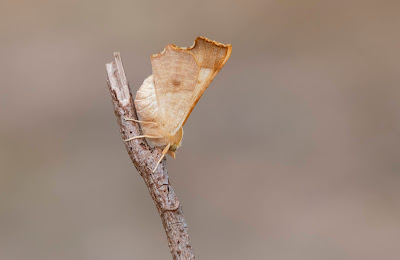With large numbers of this species being seen in recent years from East Anglia and Kent it was only a matter of time before this species spread to Sussex in big numbers.
Locally Nigel found a colony on Pevensey Levels just over 2 years ago, and this is where I too have seen them in the local area, however, there was another site where Nigel and I were confident the species would eventually appear at. As we spent a bit of time though at his site neither of us ventured to this other area at the right time of year.
Following a search for butterflies in the area I decided just to check the area out in the latter part of August and as I was looking at a particularly smart Migrant Hawker I saw 2 damselflies fly across the Hawker and immediately vanish. As it was unlikely that any other species of damselfly would be flying at that time of year in the area I was confident I had found another colony. I then waited for some time before a Willow Emerald showed itself, followed by another.
One of these also posed extremely well and several shots were taken, by far my best photos of this species over the years. Several further visits followed and some more shots were achieved including some females, which were certainly more elusive.
I also had a couple of visits with Nigel to his site, and although the damselflies there didn't pose so well it was clear the site was more established with higher numbers seen. We also got lucky seeing a pair in tandem that flew out into the over-hanging trees and settled before mating. Too far out in the water to get decent photos, but still some record shots were achieved.
A great start to the Autumn season and good to see this lovely species is spreading further into Sussex. I have since found 2 more colonies in the area.
 |
Male Willow Emerald.
|
 |
Female Willow Emerald.
|
 |
Male Willow Emerald.
|
 |
Female Willow Emerald.
|
 |
Male Willow Emerald.
|
 |
Mating Willow Emerald.
|























































